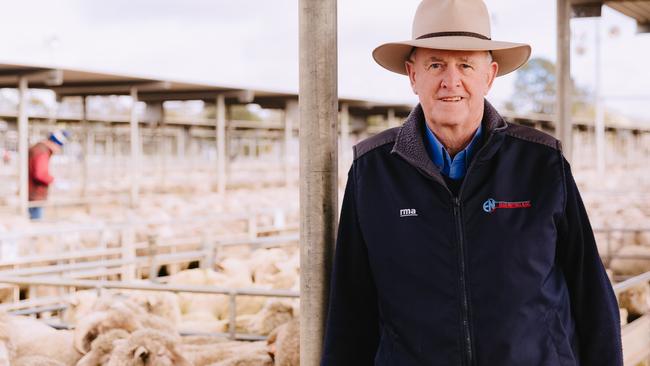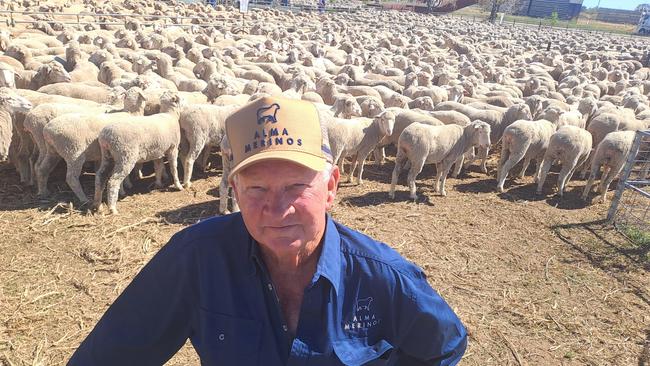Kelly Country: Why not mulesing could be costing producers at the saleyard
A trend has emerged this spring with differences of $30 to $40 a head recorded between mulesed and non-mulesed ewes at key sheep sales.
There is political correctness and then there is practicality.
And in terms of store ewes and mulesing price is showing buyers want the sheep management benefits.
Price differences of up to $30 to $40 a head have been recorded between mulesed and non-mulesed ewes at key store sheep sales this spring, including at Hay, NSW, Bendigo and Deniliquin, NSW.
It was so stark at Deniliquin last Friday that several agents said the topic needed to be given more priority within the industry as it was proving costly to vendors.
“We have been seeing $30 to $40 differences between mulesed and non-mulesed ewes,“ Bendigo agent Rupert Fawcett, of Ellis Nuttall & Co, said.
“There is all this carry-on over wool but we are not really seeing any premiums so why not mules as it is costing people a lot of money when they come to sell their store sheep.”

Mulesing is a procedure whereby skin is removed from a lamb’s breech and tail. This removes skin folds and wrinkles and creates a patch free of wool fibres, which means the sheep is less prone to blowflies and fly strike.
In recent years animal welfare groups have lobbied for the practice to be banned and the issue gained traction with some companies, particularly high end clothing brands who have since built campaigns around using wool from non-mulesed sheep.
In 2019 the Victorian Government introduced legislation making it mandatory to use pain relief when mulesing lambs.
The sheep industry has spent a lot of money on developing pain relief for mulesing and lamb marking, and it is an issue that divides.
Some producers have put considerable time and effort into selective breeding to develop flocks with a bare breech that don’t require mulesing, while others have changed management practices to try and comply with the requirements for non-mulesed wool.
There is no right or wrong approach. The point agents are making is producers need to consider the store sheep component of their operation and the impact not mulesing can have on the sale price of young ewes.
If they are not getting much of a premium for non-mulesed wool, but losing up to $40 on the price of their store ewes, maybe they need to reconsider their approach.
The Weekly Times has been told at least three vendors who sell Merino ewes at Hay each September, and who haven’t been mulesing ewes, have done the procedure on this year’s drop of lambs due to the price differences seen at the market.

Merino breeder Graham Morphett, Alma Merinos, said there was a significant pool of buyers who would only bid on ewes that were mulesed and it could translate into a “huge price difference”. Alma use pain relief and mules ewe lambs and tail strip wether lambs.
“If we didn’t mules our sheep we wouldn’t get near as much money,” he said.
“When your selling ewes south into cropping country farmers don’t want the extra work of having to get sheep in for jetting and watching flies,” he said.
Several Victorian agents said they had clients who would not purchase non-mulesed ewes.
To look at the potential cost, there was a big run of 2000 young Merino ewes in a line which weren’t mulesed at Deniliquin last week. They sold for $79 and $71, buyers themselves noting there was probably $30 off the price due to not being mulesed: 2000 times $30 adds up to $60,000 which is not insignificant money.




